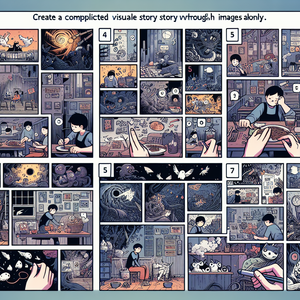The Hidden Perks of Being a Radiology Tech

One of the most attractive features of being a radiology tech is the flexibility that comes with the role. Many healthcare facilities offer a variety of shifts, including part-time, full-time, and even on-call positions. This flexibility can be particularly advantageous for individuals with family commitments, students pursuing degrees, or those with other passions outside of their professional life. For example, many radiology technicians work three 12-hour shifts per week, allowing them four days off. This kind of schedule is a luxury not easily found in most professions. The extra days off can be utilized for family activities, personal projects, or further education, leading to a well-rounded and balanced lifestyle. This flexibility is a significant draw for many entering the field, as it allows them to maintain both personal and professional commitments without feeling overwhelmed.
Opportunities for Continuing Education: Career Growth and Specialization
Another hidden perk of a career in radiology technology is the vast potential for continuing education and specialization. The field is rapidly advancing with technological improvements, and radiology technicians are encouraged to stay abreast of these changes. Many employers provide support for ongoing education, including tuition reimbursement programs and opportunities to attend workshops and conferences. Radiology techs can specialize in various areas, such as MRI, CT scans, mammography, or even interventional radiology. Specializing not only enhances a technician's skill set but can also lead to increased earning potential. For instance, a radiology technician who becomes certified in MRI may find themselves in high demand, with job openings that often offer higher salaries and more fulfilling responsibilities. This commitment to lifelong learning and skill enhancement ensures that radiology techs remain competitive and well-equipped to advance their careers.
Unique Work Environments: A Diverse Career Landscape
Radiology technicians enjoy the advantage of working in a variety of settings, each offering a unique work environment. From fast-paced hospital emergency rooms to quieter outpatient clinics and even mobile imaging units, the diversity of workplaces means that no two days are ever the same. Such variety can keep the job engaging and mitigate the monotony often associated with traditional office roles. Moreover, working in diverse environments allows radiology techs to interact with a broad spectrum of patients and healthcare professionals. This interaction can provide a sense of fulfillment and purpose, knowing that they play a crucial role in diagnosing and treating patients. The ability to work in different environments not only enriches the tech's professional experience but also opens doors to networking opportunities and a broader understanding of the healthcare system as a whole.
Interpersonal Skills: Building Connections with Patients
While technology is undoubtedly a significant aspect of a radiology technician's daily tasks, the interpersonal skills required for the job should not be underestimated. Radiology technicians frequently interact with patients, providing comfort and support during potentially stressful procedures. These interactions often lead to meaningful connections and a profound sense of accomplishment, as technicians help ease patient anxieties and contribute positively to their healthcare experience. For example, a radiology tech who takes the time to explain the procedure to a nervous patient can dramatically enhance that patient's experience. Such small acts of kindness and professionalism can lead to positive feedback from patients and a strengthened reputation within the healthcare facility. Building these connections not only enriches the technician's work life but also reinforces the importance of empathy and communication in healthcare.
In conclusion, while the salary and job stability of a radiology technician are undoubtedly important factors to consider, the hidden perks of the profession significantly enhance job satisfaction and career fulfillment. Flexible scheduling, opportunities for continuing education, diverse work environments, and the ability to forge meaningful connections with patients all contribute to a rewarding career in radiology technology. For those contemplating a path in healthcare, the field of radiology technology offers not just a stable career but also a fulfilling and enriching professional journey. By embracing these hidden perks, aspiring healthcare professionals can find a uniquely satisfying career, making radiology technology an excellent choice for many. As the healthcare landscape continues to evolve, the role of radiology technicians will remain pivotal, ensuring that they are not only integral to patient care but also to their own professional growth and satisfaction.
MRI Technologist
Hospitals, outpatient imaging centers, and specialized radiology clinics
Core Responsibilities
Operate MRI machines to capture detailed images of patients' internal structures.
Prepare patients for procedures by explaining the process and ensuring comfort.
Maintain equipment and ensure safety protocols are followed to minimize risks.
Required Skills
Proficiency in MRI technology and safety standards.
Strong attention to detail for accurate imaging.
Excellent communication skills for patient interaction.
Interventional Radiology Technologist
Major hospitals, surgical centers, and academic medical institutions
Core Responsibilities
Assist physicians during minimally invasive procedures using imaging guidance.
Prepare and maintain sterile environments and equipment for procedures.
Monitor patients' vital signs and comfort levels throughout the procedure.
Required Skills
In-depth knowledge of interventional radiology techniques and equipment.
Critical thinking skills to respond quickly to patient needs and unexpected situations.
Ability to work collaboratively with a team of healthcare professionals.
CT (Computed Tomography) Technologist
Hospitals, diagnostic imaging centers, and specialty clinics
Core Responsibilities
Perform CT scans and ensure high-quality imaging for accurate diagnosis.
Administer contrast materials as needed and monitor patients for reactions.
Maintain records of procedures and ensure compliance with health regulations.
Required Skills
Expertise in CT imaging protocols and technology.
Strong analytical skills to interpret imaging results.
Customer service skills to help ease patient anxiety during scans.
Radiologic Technologist (X-ray Specialist)
Hospitals, urgent care facilities, and radiology practices
Core Responsibilities
Execute X-ray imaging procedures for diagnostic purposes.
Collaborate with physicians to determine the best imaging techniques for patient conditions.
Ensure equipment functionality and perform routine maintenance checks.
Required Skills
Knowledge of radiographic techniques and radiation safety.
Ability to position patients for optimal imaging results.
Strong interpersonal skills to effectively communicate with patients and staff.
Mammography Technician
Women's health centers, hospitals, and specialized breast imaging facilities
Core Responsibilities
Conduct mammography exams to screen for breast cancer and other abnormalities.
Educate patients about the procedure and provide emotional support.
Analyze images for quality and accuracy, ensuring they meet regulatory standards.
Required Skills
Specialized training in mammography and knowledge of breast imaging protocols.
Empathy and sensitivity to address patient concerns and fears.
Attention to detail to ensure accurate imaging and documentation.


